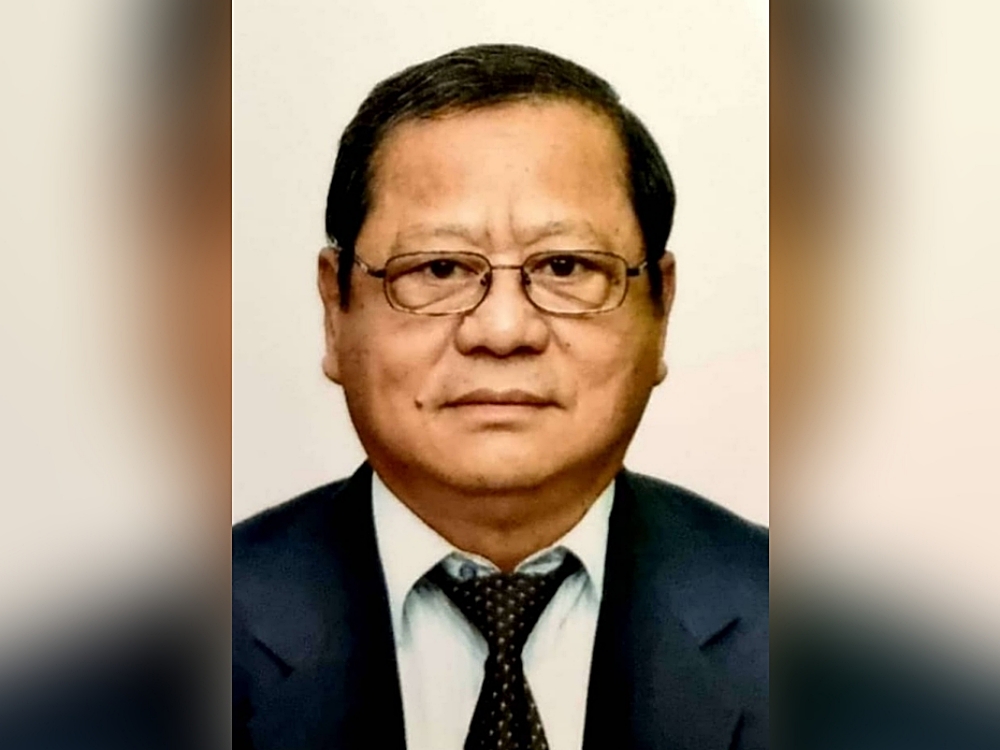ADVERTISE HERE

Wong opined that such a major geopolitical shift would inject new vitality into the region’s economy, transportation and cultural exchanges.
KUCHING (July 7): The relocation of Indonesia’s capital to Nusantara in Central Kalimantan is expected to drive significant progress and development across the Malaysian Borneo states of Sarawak and Sabah, as well as Brunei and the Province of Kalimantan.
In stating this, James Wong opined that such a major geopolitical shift would inject new vitality into the region’s economy, transportation and cultural exchanges.
“Under the dynamic leadership of Premier Datuk Patinggi Abang Johari Tun Openg, Sarawak is gradually becoming a hub for renewable energy.
“The state’s abundant river resources are harnessed for hydroelectric power, with solar panels installed on lake surfaces.
“Additionally, Sarawak is emerging as a key player in the hydrogen industry in Asia, with plans to export hydrogen to several countries,” said Wong, a prominent figure in Sarawak’s political and business circles, in a statement yesterday.
He commended Abang Johari’s visionary approach, which had put Sarawak on a path toward sustainability and innovation.
Wong also suggested further developing wind energy resources to create a diversified renewable energy portfolio, ensuring stable and sustainable energy supply.
“Sarawak, often referred to as the ‘Heaven of Malaysia’, is situated on Borneo Island. It stretches from the southwest to the northeast, bordering Brunei and Sabah.
“The region boasts a comprehensive road network, including the Pan Borneo Highway that connects Sarawak, Brunei and Sabah, providing unparalleled access to some of the world’s best diving spots and breathtaking tourist destinations.
“Sarawak is a model of racial and religious harmony, with its diverse population living together peacefully.
“English is the second official language of Sarawak, and the state government uniquely recognises the Malaysian Chinese Independent High School Unified Examination Certificate (UEC),” he said.
Wong added that graduates from Chinese secondary schools who passed the Sijil Pelajaran Malaysia (SPM) Bahasa Melayu examination could join the government civil service, reflecting the state’s inclusive policies.
Taking pride in Sarawak’s progress in education and civil service recruitment, Wong called for continued support for multilingual education to enhance the global competitiveness of the younger generation.
According to him, the state government is committed to rural transformation, connecting the entire region through the construction of roads and bridges.
He pointed out that the introduction of ATR aircraft and the establishment of a state-owned airline would enhance Sarawak’s connectivity with other Asian countries, promoting economic and cultural exchanges.
He also proposed to further develop tourism infrastructure, such as high-standard hotels and resorts, to attract more international tourists, stressing the importance of eco-tourism, preserving Sarawak’s unique natural resources and cultural heritage.
“The state government also owns Bintulu Port and is constructing new regional hospitals, including a specialised cancer hospital, which positions Sarawak on the path to becoming a highly-developed state.
“The agricultural policies are equally forward-thinking. With the introduction of new rice farming techniques, five crops can be harvested in two years, yielding two million tonnes annually, sufficient to meet local demands.
“This agricultural transformation also encourages the cultivation of vegetables and fruits for both local use and export, ensuring food security and economic growth for farmers.”
Wong also called for the establishment of a more efficient agricultural product logistics system to ensure that products could reach the market swiftly.
He was glad to note that the government had allocated RM500 million for the irrigation system to support rice cultivation.
“Premier is spearheading innovative approaches to develop Sarawak, particularly in addressing geo-engineering challenges such as the extensive peat soil areas characterised by high organic content, high compressibility and low bearing capacity.
“His forward-thinking policies are crucial in overcoming these challenges and ensuring sustainable development,” he said.
Wong further said the government should strengthen collaborations with international research institutions to introduce more green technologies and sustainable practices.
Through these efforts, he believed that Sarawak could not only address current challenges, but also lay a solid foundation for future development.
In addition, he highlighted the immense potential of Sarawak in information technology and the digital economy.
He said the government should promote the construction of digital infrastructure, attract high-tech investments and nurture local tech talent to drive the state’s digital transformation.
“Once these strategies are implemented, I believe Sarawak will shine even brighter on the international stage,” he added.









 English (US) ·
English (US) ·